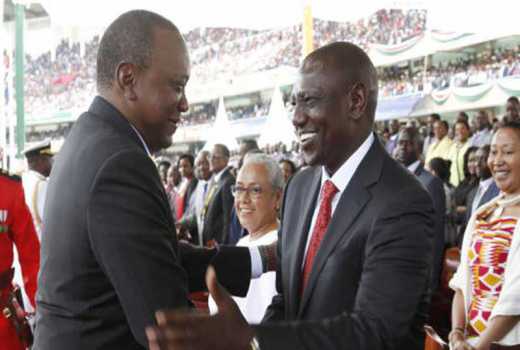×
The Standard e-Paper
Home To Bold Columnists

The murmurs triggered by the March 9 handshake between President Uhuru Kenyatta and NASA leader Raila Odinga are snowballing into a major fallout in Jubilee.
With the rebirth of change-the-constitution movement, emergence of an assertive president protective of the handshake, advent of succession caucuses and the stomping of feet by Deputy President William Ruto, the heir apparent to Kenyatta, the writing is on the wall.